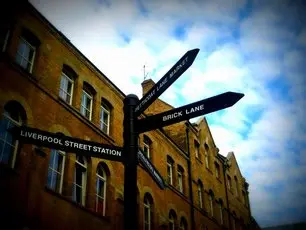Migrant Narratives and the City
CALL FOR PAPERS
 Migrant Narratives and the City International Conference organised by Central European University and the University of Debrecen 27-28 April 2018, Central European University, Budapest, Hungary
Migrant Narratives and the City International Conference organised by Central European University and the University of Debrecen 27-28 April 2018, Central European University, Budapest, Hungary
Session to be held at the University of Debrecen
26 April, 2018 Institute of English and American Studies Room 111
12.30-13.30, Carolyn Pedwell (University of Kent, UK) “Migrating Images: Digital Affect and the Habits of Social Change”
13.30-14.00 Coffee break
14.00-15.00, Dace Dzenovska (University of Oxford, UK), "Emptiness: Shifting Patterns of Global (Dis)connectivity"
Keynote Speakers:
- Carolyn Pedwell, University of Kent, UK
- Dace Dzenovska, University of Oxford, UK
- Lisa Blackman, Goldsmiths, University of London, UK
Plenary Session of Invited Respondents:
- Gábor Gyáni, Hungarian Academy of Sciences, Hungary
- Andrea Pető, Central European University, Hungary
- John McLeod, University of Leeds, UK
- Prem Kumar Rajaram, Central European University, Hungary
- Rosemary Wakeman, Fordham University, USA
Proposals are invited for an international conference on migrant narratives and the city in Western modernity to be held at Central European University, Budapest, co-organised with the Gender, Translocality and the City Research Group based at the Institute of English and American Studies, University of Debrecen. Papers exploring anthropological, sociological, historical, literary, filmic and theatrical accounts of migration and the refugee experience are welcomed. The conference aims to focus on the role of cities and public spaces, including the ways in which cities are restructured and reimagined as a result of migration; the affective dimension of the experience as well as the affects involved in reading/watching/listening to migrant and refugee narratives; the gendering of these narratives as well as the role gender plays in the life choices and integration of migrants.
We are particularly interested in comparative interpretations, such as narratives of refugees fleeing from war, genocide and oppressive political regimes in the twentieth and twenty-first centuries. Apart from exploring the impact of trauma resulting from forced displacement, which has been analysed extensively in the past few decades, we aim to foreground the affective dimensions of place-making, for instance, as well as the function of art in overcoming and healing the experience. How are cities, often considered central to the imaginary of refugees, depicted in narratives of flight? How do these narratives figure differing and overlapping subjectivities in terms of race, class, gender and sexuality? What is the role of public spaces and performances in staging the experience of displacement? Do these narratives shed light on new aspects of intersectional discrimination?
We invite submission of abstracts for 20-minute talks.
Papers on the following themes will be particularly welcomed:
- Trauma and bibliotherapy in the urban environment
- Art, "fugitive aesthetics" and the city
- Migrant narratives and urban violence
- Cities and the art of resistance
- Queer migrant narratives and the city
- Affective dimensions of place-making
- Empathy and the city
- The postmillennial metropolis and the "waning of affect"
- Mobility and urbanity: the performative/affective agency of space
- Historicization of migrant narratives
- Fugitive, refugee, migrant, émigré(e)
- Representations of ghettoization
- Vigilantism
Organizing Committee:
- Imola Bülgözdi (Institute of English and American Studies, UD)
- Ágnes Györke (Institute of English and American Studies, UD)
- Eszter Timár (Department of Gender Studies, CEU)
Please send abstracts of 300-350 words to migrantnarrativesconference@gmail.com before 15 December 2017. Should you have any questions, feel free to contact us!